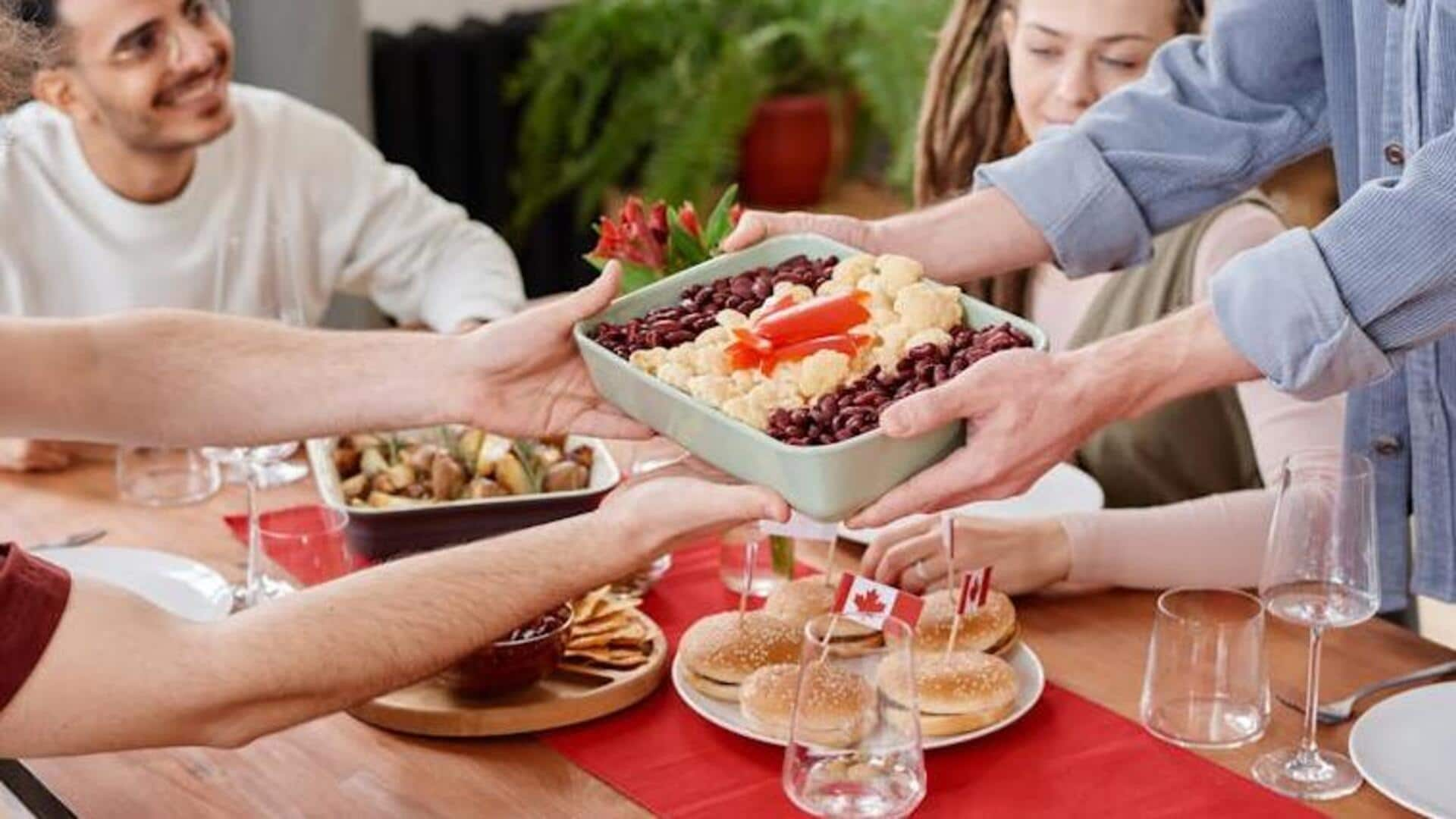
How to plan a community potluck everyone will love
What's the story
Planning a sustainable community potluck for neighborhood gatherings can be an enriching experience that builds connections and promotes eco-friendly practices. By focusing on sustainability, these events can minimize waste and encourage mindful consumption. Here's a look at some practical insights into organizing such gatherings, making them both enjoyable and earth-friendly. From choosing the right location to encouraging zero-waste practices, here's how to make your next neighborhood potluck a success.
Location selection
Choose a convenient location
Choosing an accessible location is key to a successful potluck. Opt for community centers or local parks that are within walking distance for most attendees. This eliminates the need for transportation, reducing the event's carbon footprint. Plus, make sure the venue has adequate facilities like restrooms and seating arrangements to comfortably accommodate everyone.
Menu planning
Encourage plant-based dishes
Encouraging people to bring plant-based dishes can greatly lessen the environmental footprint of your gathering. Generally, plant-based eats require less water, land, etc., to create than animal-based products. By offering recipe ideas or themes, you can inspire creativity while promoting sustainability. Not only does this contribute to a healthier planet, it also introduces attendees to the diverse world of plant-based cuisine, making the potluck educational too!
Waste reduction
Implement zero-waste practices
To drastically minimize waste at your event, encourage attendees to bring their own reusable plates, utensils, and cups. Set up clearly marked recycling and compost bins around the venue to ensure waste is handled properly. Plus, choose digital invitations instead of regular paper ones to reduce paper waste. This not only reduces environmental impact but also sets a good example for sustainable living practices among community members.
Food management
Share leftovers wisely
After the event, encourage guests to take home leftovers in their own containers to avoid wastage. Additionally, coordinate with local shelters or food banks for the donation of surplus food. This way, no food goes to waste, and you're supporting community members in need, which is all in the spirit of the potluck's sustainable ethos.
Transportation coordination
Promote carpooling options
To effectively mitigate emissions from individual car travel, it's important to encourage carpooling among attendees who live farther from the venue. A simple sign-up sheet or social media groups can make ride coordination easy and effective. This reduces the carbon footprint and builds a sense of community and collaboration among neighbors. Making the journey to the potluck part of the communal experience.